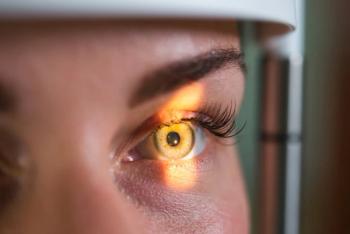
My journey into behavioral optometry
Relationship between the brain and vision took center stage at 2024 International Congress of Behavioral Optometry.
The summer Olympics in Paris, France, are over. As always, the games spotlighted the many Olympians who won gold, silver, or bronze medals. Right on the heels of the Olympics came another event that only happens once every 4 years: the 9th International Congress of Behavioral Optometry (ICBO), hosted by the Optometric Extension Program Foundation from August 14 to 17, 2024. The location changes for every Congress, and the 2024 meeting occurred in Ottawa, Canada.
Each time this conference meets (with attendees from all over the world), itaims to explore groundbreaking research, innovative practices, and transformative advancements, but the focus is on shaping the future of behavioral optometry. This year’s ICBO featured keynote speaker Norman Doidge, MD, a psychiatrist and psychoanalyst who has spoken at the White House and the United Nations on the brain and neuroplasticity. I even had the privilege of having him sign one of his books for me: The Brain That Changes Itself, a New York Times bestseller.
Course topics at this year’s conference included magic, illusion, and vision; syntonics; and how light therapy is crucial for traumatic brain injuries, neurodegenerative diseases, and even myopia management. Others covered visual snow; vision’s role in reading, rhythm, and timing; myopia management; autism; concussions; vision therapy; different lens protocols for prism prescribing; and even emotional issues, among others.
Besides attending ICBO, I was asked to give 3 lectures. The one that seemed to garner the most interest was “How to Feed a Brain: Concussion Management.” This course discussed the importance of functional nutrition and high-quality fish oils, an area typically underutilized when it comes to any traumatic brain injury (TBI). In addition to high-quality omegas, you want to take a minimum of 1000 mg of docosahexaenoic acid (DHA) if taking a supplement or eat 2 to 3 servings of small fish per week, such as salmon, sardines, or anchovies. For synaptogenesis to occur in our brains, we need 3 important ingredients: DHA, choline, and uridine. Also, vitamins and minerals are important for the brain, including magnesium glycinate, vitamin B complex, vitamin D3, carotenoids, and selenium. Doing these things as soon as someone experiences a TBI can help rejuvenate and minimize insult to the neurometabolic cascade that occurs in the brain.
My favorite part of the conference was interacting with our industry’s many brilliant minds. One that stood out to me the most was Richard Meier, OD, a retired behavioral optometrist with 44 years’ experience who loves giving back to the community via the Lions Club. He gave a course on “Read Between the Lions, a Free Program to Evaluate and Teach Accurate Jump Eye Movements.” In 2011, he met with a superintendent at an elementary school in Nevada to discuss visual tracking in students. This led to a 2-year study that found that 192 students could not track appropriately. At ICBO, Meier said, “Vision is learned, so let’s teach it; 20% to 50% of first-graders have poor saccadiceye movements, which will interfere with learning how to read.”
It is not only kids who experience trouble with saccades. Adults tend to experience diseases and trauma throughout life, such as concussions, glaucoma, age-related macular degeneration, or stroke, and these can also interfere with their ability to do accurate jump eye movements, which will slow their reading. Meier has donated his program to the Lions Club to help students and adults of all ages with accurate central/peripheral processing.
I encourage you to attend and take some courses at the following meetings: the Optometric Vision Development and Rehabilitation Association, Neuro-Optometric Rehabilitation Association, Ocular Wellness & Nutrition Society, International Sports Vision Association, and, of course, the cream of the crop, ICBO, which will be hosted in the US (location to be determined) in 2028 for its 100th anniversary. We see with our brains, and understanding these topics is crucial for you and your patients. I hope to see you there!
Newsletter
Want more insights like this? Subscribe to Optometry Times and get clinical pearls and practice tips delivered straight to your inbox.









































